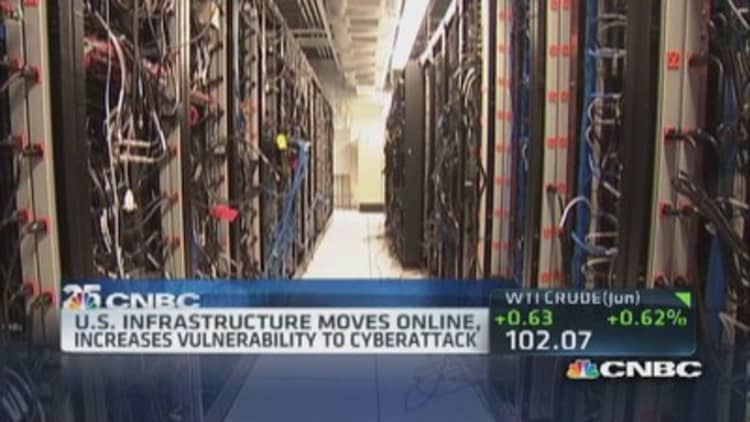
The modern-day wallet is a repository for credit cards, loyalty cards, emergency cash, identification and the occasional movie stub. But as money gets stored digitally and cards aren't necessary for purchases, the wallet may go out of business.
"We're going to see the need for that container become increasingly obsolete," Sam Shrauger, Visa's vice president of digital solutions, said in an interview with CNBC.
Shrauger imagines a world in 2039 where all payment information is connected to all the devices we use, not just phones: A refrigerator will reorder groceries that are running out; a car that can renew its own AAA membership.
"Our appliances ... become places where we transact," he said.
Read MoreQ: Will the US dollar disappear? A: No. It won't
Futurist Heather Schlegel, currently producing a documentary called "The Future of Money," agreed but said data will be stored in nontraditional ways—like a bracelet, an underskin chip or even a light tattoo with a bar code.
Schlegel envisions preferred currencies for different parties. A babysitter could request to be paid in frequent flyer miles, the hairdresser in Facebook credits. A digital short on Schlegel's website shows a restaurant server collecting a tip in "Blue Orbit Points" that can be redeemed for a trip around the moon.
The way we use traditional greenbacks will change, too, said author David Wolman, who expects the $100 bill will be phased out as were $500 and $1,000 bills in the late 1960s. But don't bet on cash becoming extinct.
Read MoreUnlocking the world's unbanked with mobile phones
"What if all the juice went out of all of our gizmos?" Wolman questions. "We may need to fall back on, you know, paper money. Germs and all."
The evolution of payments will shine a spotlight on two industries: Cybersecurity and technology.
Cybersecurity firms have seen rapid growth as consumers move data online and, as a result, see some of it inevitably compromised. Michael Daniel, a top White House official overseeing cybersecurity, said passwords as we know them will be traded for more sophisticated recognition technology.
In India, where banking infrastructure is limited, Visa Visa links payment accounts to customers' electronic identities which are verified at the transaction site by biometrics. Simply by pressing a fingerprint at a retail outlet, a consumer can be identified and can transact—a technology that solves one of the biggest dilemmas in electronic payments, according to Shrauger: "Making sure they are the rightful owner of the account."
Read MoreThe growing perils of living in a cashless society
Technology companies will tiptoe even more so into traditional financial services, to the extent they can win the trust of consumers and regulators alike.
Google already process payments through Google Wallet; Facebook is applying for a European banking license; and Amazon already makes small-business loans. Seeing one or all of these companies make inroads into personal finance—with Federal Deposit Insurance Corp. backing, of course— hardly would be far-fetched.
"Tech companies are very reluctant to enter the game because of the regulatory regime," said Dave Hoffman, partner in the financial services practice at PriceWaterhouseCoopers. "In the end, deposit insurance is an important element of the trust factor that banks do have."
And perhaps banks will recognize that value and step back into their core role in local economies: Storing deposits and making loans.
As the regulatory environment for banks continues to get stricter, alternative sources of financing will challenge traditional banking products.
Read MoreWall Street in 2039: Will it even exist anymore?
You could get a mortgage from a hedge fund, or see a branch outlet for Blackstone—a traditional buyout shop now scooping up rental real estate—in your neighborhood.
"Private equity firms are looking for the niches where they can step in and fill in," PwC's Hoffman said.
James Malick, partner at Boston Consulting Group, agreed: "Wherever there are returns, you see smart money following."
—By CNBC's Kayla Tausche and Karen Stern.




